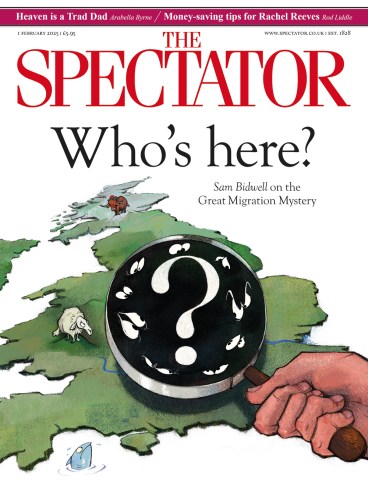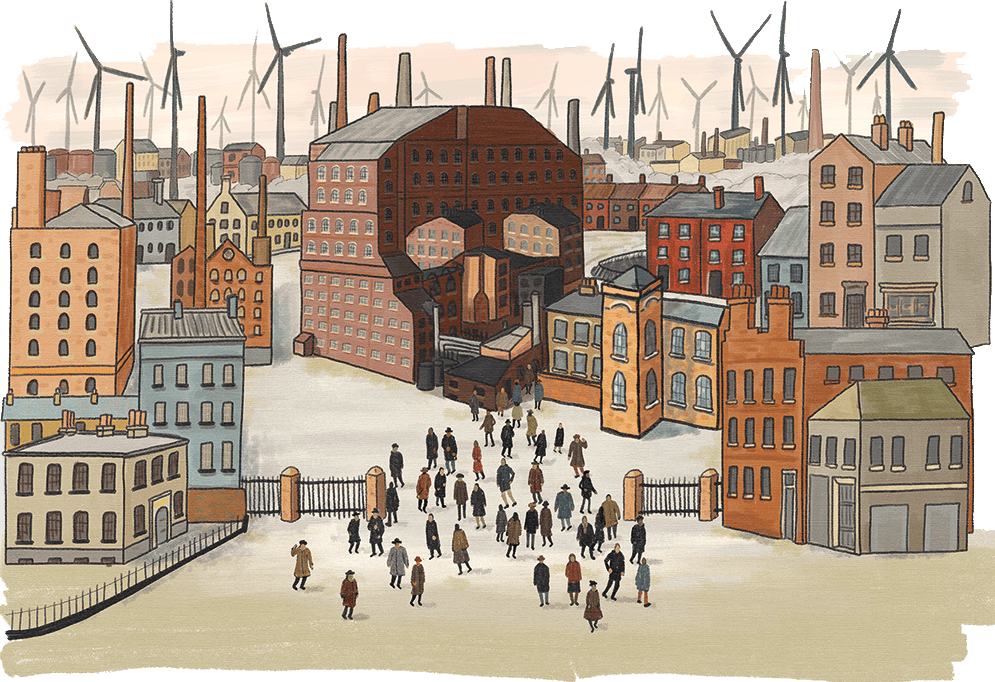
Chains of command
Sir: Matthew Lynn is correct to emphasise the economic dangers of deindustrialisation (‘Not made in Britain’, 25 January). But there are cultural dangers too. It’s now 40 years since Correlli Barnett and I made a television programme called Assembled in Britain, drawing attention to the alarming retreat of manufacturing. No recent government has respected, still less encouraged, manufacturing industry. The result is today’s mess.
What can you say about a civilisation that cannot produce the goods it needs, other than that civilisation loses integrity and pride? In 1944 Matthew King wrote a small classic called The Unwritten Laws of Engineering, pointing out that manufacturing civilisations were daily able to demonstrate the valuable relationship between effort and reward and that they were required to maintain respectful chains of command. Every MP should read this.
We have a lot to learn from factories, but maybe it really is too late. There aren’t many left.
Stephen Bayley
London SW8
Unconservative Tories
Sir: In his article on Pierre Poilievre (‘Crunch time’, 25 January), James Heale quotes one of the Canadian’s advisers as saying that the base of his party is ‘considerably more conservative’ than that of British Conservatives. This is wrong. The base of the British Conservative party is deeply conservative. The problem lay with the party’s MPs, who, time and time again, ignored their core supporters – resulting in record high taxes, uncontrolled immigration and financially ruinous ‘green’ policies. Some of them even conspired to overturn the result of the European Referendum.
This drift to the left was exacerbated by the David Cameron-style A-list imposed upon the local associations. The result of this so-called ‘modernisation’ can be seen both in the catastrophic 2024 general election result and in the rise of Reform.
David Soskin
Former special adviser to John Major
Petworth, West Sussex
The question of funding
Sir: Guy Dampier’s argument that a reform in charity law to separate out those doing charitable works from those influencing public policy is wide of the mark (‘Grift aid’, 25 January). It is often the experience of providing services that gives charities the knowledge that can improve policy outcomes. Dampier is on a more interesting road when he considers the funding of charities. Many are transparent in their sources of funds, which is wise. Perhaps the Charity Commission should be encouraged to insist on transparency of funding. It would be interesting to see the reaction of some of the charities -– particularly those which are thinktanks – to this proposal.
Sir Stuart Etherington
Former chief executive, National Council for Voluntary Organisations (1994-2019)
London SE10
Encroaching Trust
Sir: Charles Moore asks ‘Will the National Trust see sense?’ after receiving a circular from the National Trust enthusing about its recently announced ten-year farming and rural strategy (Notes, 18 January). As a farmer with a small area of woodland leased from the Trust, and with other joint activities ongoing with them over the past 50 years, I share his doubts.
Moore writes that ‘the Trust intends “to subtly move into territory beyond its remit”’. No doubt it will hotly deny such criticism. But this ignores a fundamental point. Firstly, the space is already occupied and farmed by landowners and their tenants working under manifold existing constraints. It is also overrun by a host of other agencies and interests enforcing their own rules and regulations. Above are regional and national government bodies applying policies of their choice to support the farming and rural sector. Below flourish a plethora of conservation bodies, statutory local and regional authorities, rural communities, civic bodies and special interests such as ramblers and anglers and those seeking improved access.
Does the Trust have the wit and ability to extend its remit, collaborate with these many interests and help – rather than hamper – their efforts? Given existing Trust structures and readiness to adapt to suggestion from countryside interests, experience suggests that it does not.
David Lort-Phillips
Lawrenny, Pembrokeshire
Absolute sorrow
Sir: I read with interest Mary Wakefield’s article on ‘The rise of the divorce party’ (18 January). As a solicitor, I acted for many clients in divorces in the 1960s, 1970s and 1980s. They were often emerging from very unhappy marriages, and the divorce process itself was painful and difficult. As the end approached, I explained that the final decree was imminent, and often added that they would then have something to celebrate. Invariably that comment provoked a wistful or sad expression, and the response that ‘There’s nothing here really to celebrate’. It seems that times have changed.
Robin Heslop
Sutton Coldfield, Birmingham
Flower power
Sir: I very much enjoyed Ysenda Maxtone Graham’s review of the exhibition Flower Fairies: The Magical World of Cicely Mary Barker, and she has inspired me to visit it (Arts, 18 January). But isn’t it a wee bit patronising to call the poems that accompany the lovely illustrations of the fairies (portraits of her sister’s kindergarten pupils) ‘sickly sweet’? These simple rhymes have a purpose she doesn’t mention. As a child I was given Flower Fairies of the Spring, Summer and Autumn. At 75, I can remember each poem and the name and appearance of the plant beside it. I don’t need an app to tell me their names.
Elisa Segrave
Ripe, East Sussex
Write to us letters@spectator.co.uk







Comments